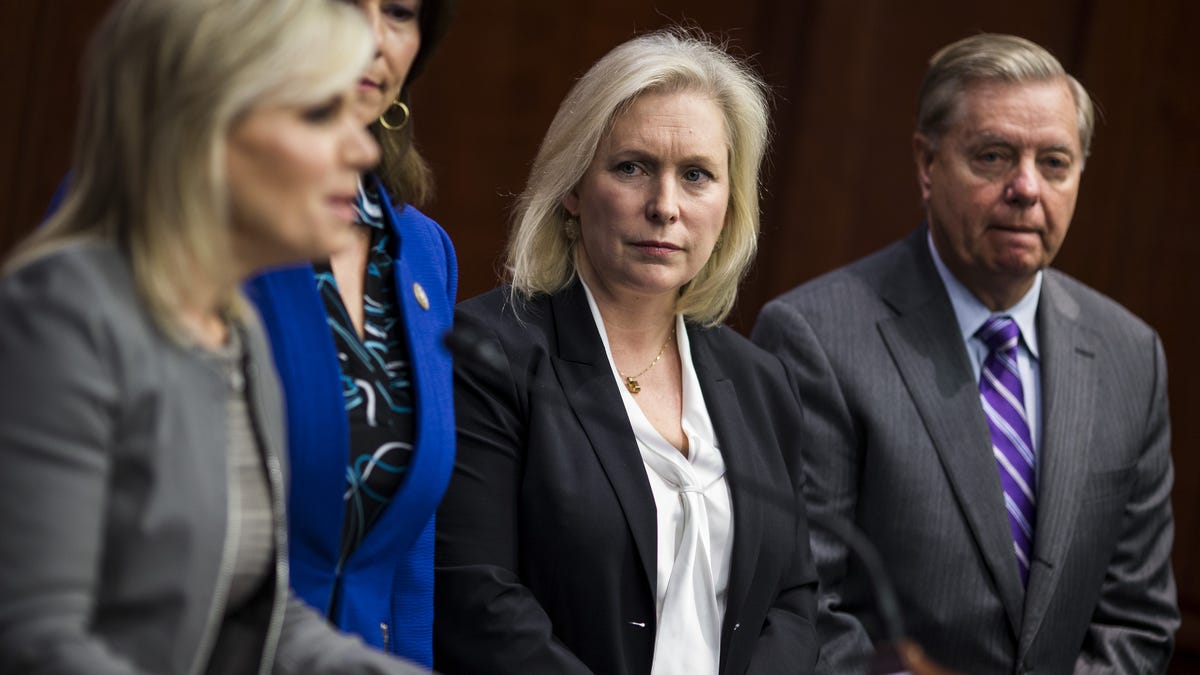Congress passes landmark #MeToo bill banning forced arbitration in sexual harassment cases
The bipartisan bill's passage follows moves by Facebook and Google to drop mandatory arbitration clauses.

Sens. Kirsten Gillibrand and Lindsey Graham during a news conference unveiling bipartisan legislation addressing sexual harassment in the workplace.
In a rare show of bipartisanship, the Senate on Thursday passed legislation prohibiting companies from requiring employees to resolve sexual harassment and assault cases through arbitration.
Co-sponsored by Republican Sen. Lindsey Graham of South Carolina and Democrat Sen. Kirsten Gillibrand of New York, the Ending Forced Arbitration Act cleared the House of Representatives earlier this week.
"The days of sexual harassment and sexual assault cases being buried in unfair arbitration clauses are now over," Graham tweeted on Thursday.
The bill now heads to President Joe Biden to be signed into law.
In a Feb 2. statement, the White House said the measure "empowers survivors" by giving them the option to take their cases to court.
In 2018, Facebook made arbitration an option, rather than a requirement, in sexual harassment cases.
Current law "silences victims of abuse by forcing them into a confidential dispute forum without the right to appeal," according to the release, issued by the White House Office of Management and Budget.
The bill comes as a growing number of tech companies have backed away from mandating arbitration in harassment and assault cases, including Uber, Google and Microsoft.
In 2018, Facebook announced it would make arbitration "a choice rather than a requirement" in sexual harassment claims. It was at around that time that the #MeToo movement, focused on addressing sexual abuse and sexual harassment, was starting to capture widespread public attention.
"There's no question that we're at a pivotal moment," Lori Goler, head of people at Facebook (now rebranded as Meta), told The Wall Street Journal at the time. "This is a time when we can be part of taking the next step."
More than 60 million American workers are subject to mandatory arbitration clauses, according to the White House, "often without realizing it until they come forward to bring a claim against their employer."

